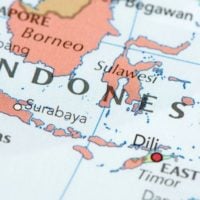Deadline: 25-Aug-2020
The Partnership for Economic Policy (PEP) has launched a call for proposals on “Climate Change in Sub-Saharan Africa: Impacts and Responses for Women and Girls”.
Global Affairs Canada (GAC) has awarded funding to PEP for a new research initiative on “Climate change in Sub-Saharan Africa: Impacts and responses for women and girls”. Through this three-year initiative (2020-2023), PEP will support up to four (4) research projects, each in a different sub-Saharan African country.
To ensure the relevance of the research and its use for informing policy, the projects will be led by teams of local researchers and government officers. The PEP research support program spans four distinct methodological approaches. For each approach, experts from around the world are assigned as mentors to the research project teams upon the teams’ selection.
- Increasing women’s leadership in defining and implementing solutions to mitigate or adapt to climate change effects, and
- Mitigating the effects of climate change on gender equality.
Approaches
- Macro-micro policy modelling (MPIA group)
- Microeconomic analysis and non-experimental impact evaluation (PMMA group)
- Experimental impact evaluation (PIERI group)
N.B. Proposals involving data collection will NOT be considered/accepted for support under the MPIA and PMMA groups.
- Conducting rigorous, state-of-the-art and gender-sensitive analysis to produce a scientifically-sound evidence base
- Preparing and submitting scientific articles (based on their project’s research outputs) for submission to highly-regarded journals
- Consulting, engaging and communicating with a broad set of stakeholders (beyond the government unit involved), such as policy actors from other sectors, NGOs, CSOs (especially women’s organizations) involved in promoting gender equality at the national level, throughout the project cycle
- The contextualization and dissemination of research and scientific advice for more effective policy use
- The effective use of evidence to inform policy advisory processes within government institutions.
- Funding is up to US $58 K, including US $24 K in a research (cash) grant tied to deliverables and up to US $34K in various subsidies, such as for participation in PEP meetings and study visits, publications in peer-reviewed journals, presentations in international conferences, the organization of national policy conferences to share/discuss findings with stakeholders, etc.
Team Composition
- Four (4) researchers – including one senior/experienced researcher acting as the team leader and at least two researchers aged under 30 – with a sufficient academic and/or professional background in economic policy analysis. Having a master’s degree/diploma or being currently enrolled in a master’s program is a minimum requirement (generally, team leaders should have a doctoral degree/diploma or be currently enrolled in a doctoral program). These members should describe their relevant training and experience in the issues and research techniques involved.
- Two (2) government officials/officers from (and with their involvement sanctioned by) the institution in charge of the policy/program that the research aims to inform. These government-affiliated members must have a good understanding of the relevant policy processes and priorities, but are not required to have research experience.
- Be gender-mixed
- Female members must represent at least 50% of researchers (including the team leader) and at least 50% of government-affiliated members.
- All female members must contribute substantively to the project.
- PEP particularly encourages teams with a female leader.
- Be composed exclusively of sub-Saharan African nationals, who are residing in sub-Saharan Africa for the duration of the project.
- PEP particularly encourages teams from low-income economies, fragile and/or conflict-affected situations (LFCs), but proposals are welcome from all sub-Saharan African countries.
- A researcher can be funded as a team member a maximum of three times by PEP (no more than twice as team leader) and should show marked progression over time.
- A researcher who is already involved in a currently funded project is not eligible to submit a new proposal before the approval of the final report of the currently funded project.
- Each team should identify one team member who has the expertise and capacities to replace the team leader if the latter is not able to complete the project for any reason.
For more information, visit http://www.pep-net.org/call-proposals









































